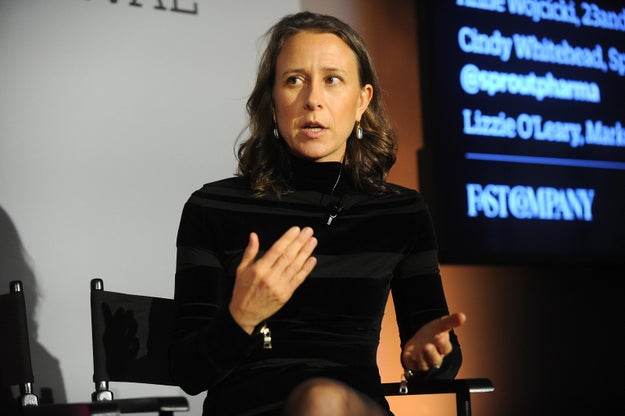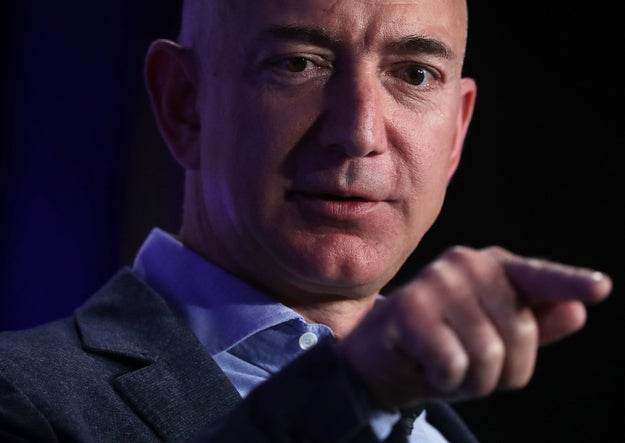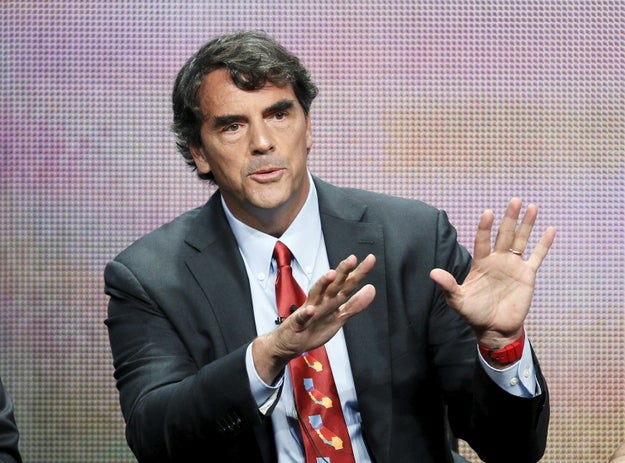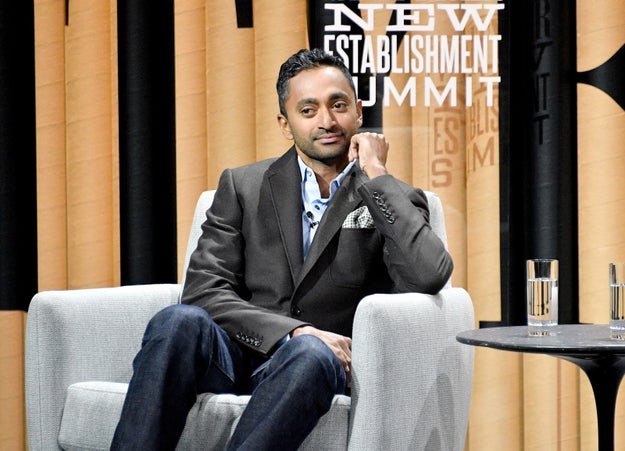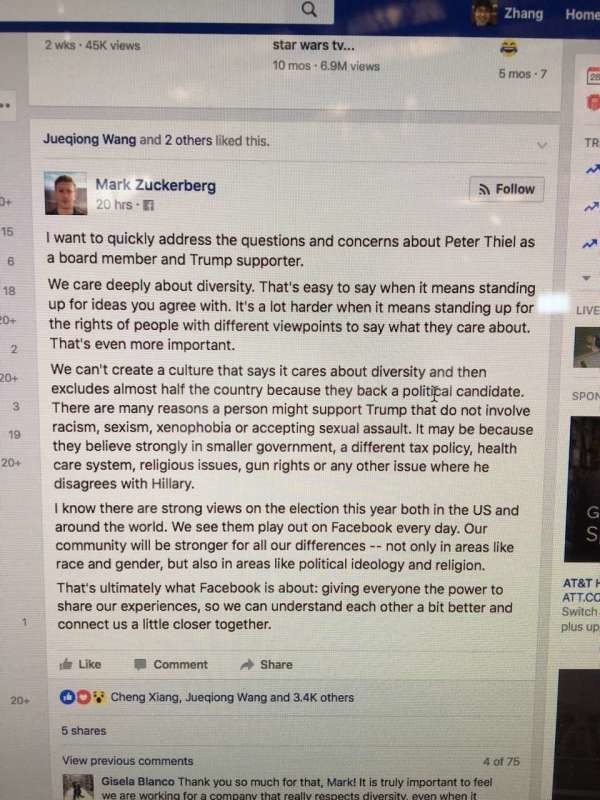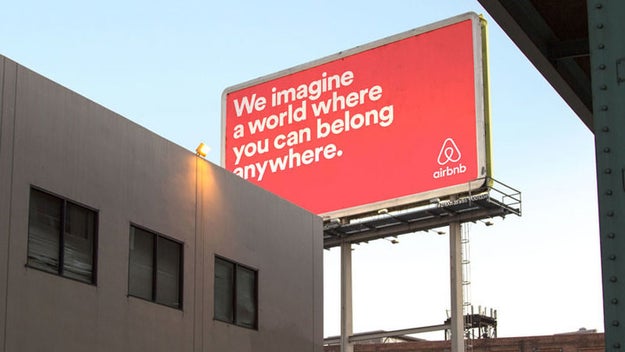
Carl Court / Getty Images
On 29 November 2010, then US secretary of state Hillary Clinton stepped out in front of reporters to condemn the release of classified documents by WikiLeaks and five major news organisations the previous day.
WikiLeaks' release, she said, “puts people’s lives in danger”, “threatens our national security”, and “undermines our efforts to work with other countries”.
“Releasing them poses real risks to real people,” she noted, adding, “We are taking aggressive steps to hold responsible those who stole this information.”
Julian Assange watched that message on a television in the corner of a living room in Ellingham Hall, a stately home in rural Norfolk, around 120 miles away from London.
I was sitting around 8ft away from him as he did so, the room’s antique furniture and rugs strewn with laptops, cables, and the mess of a tiny organisation orchestrating the world’s biggest news story.
Minutes later, the roar of a military jet sounded sharply overhead. I looked around the room and could see everyone thinking the same thing, but no one wanting to say it. Surely not. Surely? Of course, the jet passed harmlessly overhead – Ellingham Hall is not far from a Royal Air Force base – but such was the pressure, the adrenaline, and the paranoia in the room around Assange at that time that nothing felt impossible.
Spending those few months at such close proximity to Assange and his confidants, and experiencing first-hand the pressures exerted on those there, have given me a particular insight into how WikiLeaks has become what it is today.
To an outsider, the WikiLeaks of 2016 looks totally unrelated to the WikiLeaks of 2010. Then it was a darling of many of the liberal left, working with some of the world’s most respected newspapers and exposing the truth behind drone killing, civilian deaths in Afghanistan and Iraq, and surveillance of top UN officials.
Now it is the darling of the alt-right, revealing hacked emails seemingly to influence a presidential contest, claiming the US election is “rigged”, and descending into conspiracy. Just this week on Twitter, it described the deaths by natural causes of two of its supporters as a “bloody year for WikiLeaks”, and warned of media outlets “controlled by” members of the Rothschild family – a common anti-Semitic trope.
The questions asked about the organisation and its leader are often the wrong ones: How has WikiLeaks changed so much? Is Julian Assange the catspaw of Vladimir Putin? Is WikiLeaks endorsing a president candidate who has been described as racist, misogynistic, xenophobic, and more?
These questions miss a broader truth: Neither Assange nor WikiLeaks (and the two are virtually one and the same thing) have changed – the world they operate in has. WikiLeaks is in many ways the same bold, reckless, paranoid creation that once it was, but how that manifests, and who cheers it on, has changed.

Julian Assange in the grounds of Ellingham Hall in December 2010.
Carl Court / AFP / Getty Images
The cable release
Clinton’s condemnation of WikiLeaks and its partners’ release of classified cables was a simple requirement of her job. Even had she privately been an ardent admirer of the site – which seems unlikely – doing anything other than strongly condemning the leak was nonetheless never an option.
That’s not how it felt to anyone inside WikiLeaks at that moment, though. It was an anxiety-inducing time. WikiLeaks was the subject of every cable TV discussion and every newspaper front page, and press packs swarmed the gates of every address even tenuously connected to it. Commentators called for arrest, deportation, rendition, or even assassination of Assange and his associates.
At the same time, WikiLeaks was having its payment accounts frozen by Visa and Mastercard, Amazon Web Services pulled hosting support, and Assange was jailed for a week in the UK (before being bailed) on unrelated charges relating to alleged sexual offences in Sweden.
Inside WikiLeaks, a tiny organisation with only a few hundred thousand dollars in the bank, such pressure felt immense. Most of the handful of people within came from a left-wing activist background, many were young and inexperienced, and few had much trust of the US government – especially after months of reading cables of US mistakes and overreactions in the Afghan and Iraq war logs, often with tragic consequences.
How might the US react, or overreact, this time? WikiLeaks was afraid of legal or extralegal consequences against Assange or other staff. WikiLeakers were angry at US corporations creating a financial blockade against the organisation with no court ruling or judgments – just a press statement from a US senator.
And the figurehead of this whole response was none other than Hillary Clinton. For Assange, to an extent, this is personal.

Hillary Clinton in 2010, giving remarks condemning WikiLeaks&039; release of classified embassy cables.
Win Mcnamee / Getty Images
In the room
It’s unfair, or at least an oversimplification, to say Assange is anti-American. He would say he supports the American people but believes its government, its politics, and its corporations are corrupt.
A result of this is that he doesn’t see the world in the way many Americans do, and has no intrinsic aversion to Putin or other strongmen with questionable democratic credentials on the world stage.
This shows in some of his supporters. A few days after Assange arrived with me and a few others at Ellingham Hall, an older man, introduced to us as “Adam”, turned up. Assange had invited independent freelance journalists from around the world to the country house to see cables relating to their country – usually no more than a few thousand at a time.
“Adam” was different: He immediately asked for everything relating to Russia, eastern Europe, and Israel – and got it, more than 100,000 documents in all. A few stray comments of his about “Jews” prompted a few concerns on my part, dismissed quickly by another WikiLeaker – “don’t be silly… He’s Jewish himself, isn’t he?”
A short while later, I learned “Adam”&039;s real identity, or at least the name he most often uses: He was Israel Shamir, a known pro-Kremlin and anti-Semitic writer. He had been photographed leaving the internal ministry of Belarus, and a free speech charity was concerned this meant the country’s dictator had access to the cables and their information on opposition groups in the country.
Assange showed no concern at these allegations, dismissing and ignoring them until the media required a response. Assange simply denied Shamir had ever had access to any documents.
This was untrue, Assange knew it was untrue, and I knew it was untrue — it was me, at Assange’s instructions, who gave them to him. A few days later, a reporter at a Russian publication wrote to WikiLeaks.
“I really can&039;t understand why Wikileaks is just cooperating with the magazine Russian reporter which never had a record of even slightly critising [sic] the Russian government,” they wrote.
“I contacted the person responsible for contacts with Wikileaks in Russia (Israel Shamir) but he told me we could not look at the cables ourselves and requested money which is not very convenient for us (not because of money but because we would like to go through the files as well).”
Anti-Semitism never seemed a major part of Assange’s agenda – I never heard him say a remark I caught as problematic in this way – but it was something he was happy to conveniently ignore in others. Support for Russia or its strongmen eastern European allies was much the same: tolerable for those who otherwise are allies of WikiLeaks and do as Assange says.
WikiLeaks has never had a problem with Russia: not then, not now.

A supporter of Julian Assange outside Ecuador&039;s London embassy at a protest in 2012.
Oli Scarff / Getty Images
A certain resemblance
Assange is routinely either so lionised by supporters or demonised by detractors that his real character is lost entirely.
Far from the laptop-obsessed autist he’s often seen as, he’s a charismatic speaker with an easy ability to dominate a room or a conversation. He may have little interest in listening to those around, but he can tell whether or not he has your attention and change his manner to capture it. He has, time and again, proven to be a savvy media manipulator, marching the mainstream media up the hill and down again to often damp-squib press conferences. His technical skills are not in doubt.
What’s often underestimated is his gift for bullshit. Assange can, and does, routinely tell obvious lies: WikiLeaks has deep and involved procedures; WikiLeaks was founded by a group of 12 activists, primarily from China; Israel Shamir never had cables; we have received information that [insert name of WikiLeaks critic] has ties to US intelligence.
At times, these lies are harmless and brilliant. When, on the day the state cables launched, WikiLeaks’ site wasn’t ready (we hadn’t even written the introductory text), the site was kept offline after a short DDoS attack, so Assange took the opportunity to tweet that the site was under an unprecedentedly huge attack to give us time to get the site together.
Six hours later, when we were done, all eyes were looking: What was so bad in the cables that someone was working so hard to keep the site offline? The dramatic flourish worked, but other lies were dumb and damaging – and quickly eroded any kind of trust for those trying to work closely with him.
Redaction – possibly one of the clearest apparent changes between 2010 and 2016 WikiLeaks – became one of these trust issues. For Assange, redacting releases was essentially an issue of expediency: It would remove an attack line from the Pentagon and state, and keep media partners onside. For media outlets, it was the only responsible way to release such sensitive information.
These days, WikiLeaks routinely publishes information without redaction, and seemingly with only minimal pre-vetting. This is merely a change in expediency: There are no longer newspaper partners to keep onside. The results are a partial vindication for both sides – while it&039;s hard to dispute that some of WikiLeaks&039; publication of private data has been needlessly reckless and invasive, there remains no evidence of any direct harm coming to someone as a result of a WikiLeaks release.
Conversely, Assange often trusts strangers more than those he knows well: He dislikes taking advice, he dislikes anyone else having a power base, and he dislikes being challenged – especially by women. He runs his own show his own way, and won’t delegate. He’s happy to play on the conspiratorial urges of others, with little sign as to whether or not he believes them himself.
There are few limits to how far Assange will go to try to control those around him. Those working at WikiLeaks – a radical transparency organisation based on the idea that all power must be accountable – were asked to sign a sweeping nondisclosure agreement covering all conversations, conduct, and material, with Assange having sole power over disclosure. The penalty for noncompliance was £12 million.
I refused to sign the document, which was sprung on me on what was supposed to be a short trip to a country house used by WikiLeaks. The others present – all of whom had signed without reading – then alternately pressured, cajoled, persuaded, charmed, and pestered me to sign it, alone and in groups, until well past 4am.
Given how remote the house was, there was no prospect of leaving. I stayed the night, only to be woken very early by Assange, sitting on my bed, prodding me in the face with a stuffed giraffe, immediately once again pressuring me to sign. It was two hours later before I could get Assange off the bed so I could (finally) get some pants on, and many hours more until I managed to leave the house without signing the ridiculous contract. An apologetic staffer present for the farce later admitted they&039;d been under orders to “psychologically pressure” me until I signed.
And once you have fallen foul of Assange — challenged him too openly, criticised him in public, not toed the line loyally enough — you are done. There is no such thing as honest disagreement, no such thing as a loyal opposition differing on a policy or political stance.
To criticise Assange is to be a careerist, to sell your soul for power or advantage, to be a spy or an informer. To save readers a Google search or two, he would tell you I was in WikiLeaks as an “intern” for a period of “weeks”, and during that time acted as a mole for The Guardian, stole documents, and had potential ties to MI5. Compared to some who’ve criticised Assange, I got off fairly lightly.
Those who have faced the greatest torments are, of course, the two women who accused Assange of sexual offences in Sweden in the summer of 2010. The details of what happened over those few days remain a matter for the Swedish justice system, not speculation, but having seen and heard Assange and those around him discuss the case, having read out the court documents, and having followed the extradition case in the UK all the way to the supreme court, I know it is a real, complicated sexual assault and rape case. It is no CIA smear, and it relates to Assange&039;s role at WikiLeaks only in that his work there is how they met.
Assange&039;s decision – and it was a decision – to elide his Swedish case with any possible US prosecution was a cynical one. It led many to support his cause alongside those of Chelsea Manning or Edward Snowden. And yet it is more difficult, not easier, to extradite Assange to the US from Sweden than from the UK, should Washington even wish to do so.
Assange coming to believe his own spin may be what&039;s been behind six years of effective imprisonment for him. No one is keeping him in the Ecuadorian embassy – where he has fallen out with his hosts – but himself, and a fear of losing face. But the women who began the case have lost at least as much, becoming for months and years two of the most hated figures on the internet, smeared as “whores”, “CIA spies”, and more. They will never get their time back.

Four photos of Julian Assange&039;s room in Ecuador&039;s London embassy, prepared for an internal report following an incident in which officials believe Assange toppled a bookshelf.
Ecuadorian government report / Via buzzfeed.com
How it ends
All of this is the cocktail of ingredients that produces 2016’s incarnation of WikiLeaks. Julian Assange mistrusts the US government, dislikes Hillary Clinton, and has spent years trapped in a small embassy flat in west London, in declining physical and psychological health, monitored minute-by-minute in reports filed by his wary Ecuadorian hosts.
Assange would not, in my view, ever knowingly be a willing tool of the Russian state: If Putin came and gave him a set of orders, they’d be ignored. But if an anonymous or pseudonymous group came offering anti-Clinton leaks, they’d have found a host happy not to ask too many awkward questions: He’s set up almost perfectly to post them and to push for them to have the biggest impact they can.
The poet Humbert Wolfe wrote, “You cannot hope to bribe or twist / (thank God! the British journalist. / But, seeing what the man will do / unbribed, there&039;s no occasion to.” Such is Russia’s good fortune with Assange. If it is indeed Russia behind the leaks, as US intelligence has reported, he will need no underhanded deals or motives to do roughly as they’d hope. He would do that of his own free will.
the British journalist. / But, seeing what the man will do / unbribed, there&039;s no occasion to.” Such is Russia’s good fortune with Assange. If it is indeed Russia behind the leaks, as US intelligence has reported, he will need no underhanded deals or motives to do roughly as they’d hope. He would do that of his own free will.
The question is whether Assange will end up disappointed. Assange believes WikiLeaks was a primary driver of the Arab Spring, which led to major uprisings in around a dozen countries. This is the stage on which Assange believes he plays — the equal of a world leader, still the biggest story in the world.
For a time, he was. While the extent of WikiLeaks&039; role in the Arab Spring remains a matter for debate, Assange was at the forefront of an information revelation. His attempts to regain the spotlight in the meantime have largely failed.
WikiLeaks has republished public information as if a leak, published hacks obtained by Anonymous and Lulzsec for only moderate impact, and released email caches of private intelligence companies of much less significance than what went before. Even Assange&039;s attempt to aid Edward Snowden was largely botched, leaving the whistleblower stranded in a Moscow airport for weeks. In recent weeks, Snowden has publicly clashed with Assange over the latter&039;s handling of the Democratic National Committee leaks.
Assange&039;s approach has taken WikiLeaks from the most powerful and connected force of a new journalistic era to a back-bedroom operation run at the tolerance (or otherwise) of Ecuador’s government. This is his shot at reclaiming the world stage, and settling a score with Hillary Clinton as he does so.
Assange is a gifted public speaker, with a talent for playing the media, struggling with an inability to scale up and professionalise his operation, to take advice; a man whose mission was often left on a backburner in his efforts to demonise his opponents.
These are traits often ascribed to Donald Trump, the main beneficiary of WikiLeaks’ activities through the reaction, and its modern-day champion during presidential debates. Those traits have left Assange a four-year resident of a Harrods hamper–laden single room in a London embassy.
It remains to be seen what they’ll do for Donald Trump.
Quelle: <a href="Inside The Strange, Paranoid World Of Julian Assange“>BuzzFeed
